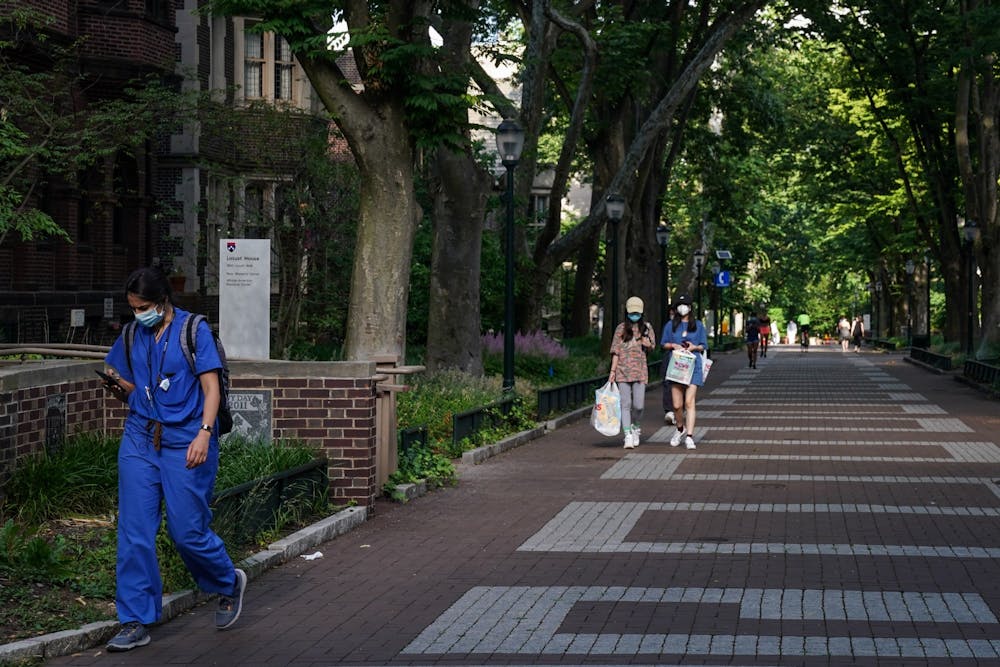
Penn’s decision for the fall semester allows students to come back to campus until November 20. After Thanksgiving Break, the remaining semester, including final exams, will be online. Also in the announcement is the Student Campus Compact — calling for face coverings, six-feet physical distancing, and avoiding gatherings exceeding 25 people. Chief Wellness Officer Benoit Dubé recently noted, however, that the University’s decision for on-campus operations is “not immutable,” and may undergo modifications. He expressed that in the worst case scenario, Penn may have to revoke its decision to welcome students back on campus. With room for adjustments, the University should implement a required online COVID-19 orientation for returning students.
Penn is commended for its comprehensive plan by some, specifically for its testing and contact tracing plans. But these preventative measures require cooperative behavior from every single student. The importance of this plan’s success cannot be taken lightly, and thus, students who are returning to campus in the fall should be required to undergo an online orientation. The orientation would be in a similar format as the Thrive at Penn orientation both incoming undergraduate and graduate students are required to take. This online orientation should list how the virus spreads, preventative measures, and the consequences when breaking the Student Campus Compact.
The first and most obvious rationale for this orientation is the assumption that college students are not going to be as careful as the administration needs for their plan to work. Laurence Steinberg, Psychology professor at Temple University, wrote that “interventions designed to diminish risk-taking in this age group, such as attempts to squelch binge drinking on campus, have an underwhelming track record.” Steinberg provides the same downbeat tone toward universities' attempts to mitigate transmission.
Such doubts echo among Penn students, as some admit that the Student Campus Compact will not be wholly effective at forcing all students to follow social distancing and mask wearing rules. How the administration is handling this supervision is similar to how it handles the academic honor code — to trust the integrity of its students. But this is problematic: a student breaking this trust is more than integrity or a failed grade, but a threat to human life.
Second, the University’s COVID-19 prevention plan and TAP share their intention to achieve a safe campus through awareness and education. According to its website, “TAP prepares students to make healthy choices during their university experience, and provides information about resources available to support student success.” The Student Campus Conduct needs to go a step further through a mandatory online orientation. Some might argue that TAP is ineffective, and many students cursorily complete the program. But something is better than nothing — some approach that forces students to become aware and knowledgeable about the risks, implications, and causes of COVID-19 is better than the simple and primitive belief that all students will adhere at all times.
Cornell University released its decision for the fall semester on June 30, listing similar plans as Penn. A study the school released determined that two to 10 times more students could be infected with COVID-19 because the school “has no authority to mandate testing or restrict students’ behavior” for those who live off campus. These findings pose similar threats to Penn: approximately 42% of undergraduates live off campus.
On-campus housing is now limited and prioritizes first years, sophomores, and transfer students, so rising juniors and seniors will not be guaranteed on-campus housing even if they previously signed up for it. More people will be living off campus if returning to campus in the fall, and therefore will be subject to their own rules and safety precautions. Dubé even said that students living on campus who test positive for COVID-19 will be taken to an isolation facility, but it will be up to students living off campus to isolate on their own.
For a pandemic on a scale like this, it is right and more than reasonable to require returning students to participate in a COVID-19 online orientation. This orientation would encompass a series of videos and quizzes on preventative measures, their importance, and how the virus gets transmitted. Amid this “new normal,” the COVID-19 online orientation is an imperative and crucial piece of Penn’s mission for excellence, innovation, and impact.

STEPHANIE YOON is a rising College sophomore from McLean, Virginia. Her email address is sawyung@sas.upenn.edu.
Have opinions of your own you would like to share? Submit a guest column.
The Daily Pennsylvanian is an independent, student-run newspaper. Please consider making a donation to support the coverage that shapes the University. Your generosity ensures a future of strong journalism at Penn.
Donate







